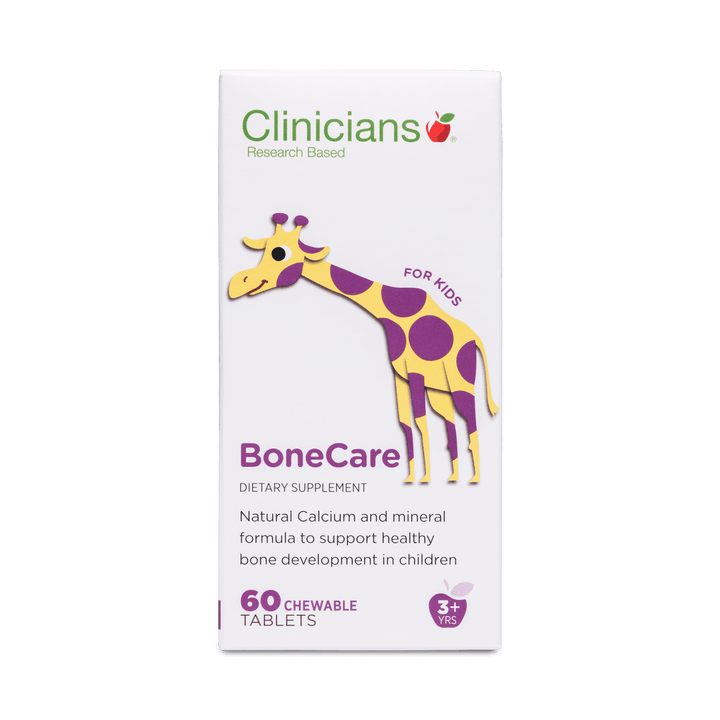Did you know Vitamin D is made in the body from exposure to sunlight? Find out how it is beneficial for our body, what other vitamins it likes to work with, and why it is important in the winter months.
Vitamin D is one of the few vitamins not predominantly obtained from our diet, as it is mostly created in the body from exposure to the sun. It is a fat-soluble vitamin that comes in 2 forms. Vitamin D3, also known as cholecalciferol, is made from the action of sunlight on skin and from eating foods such as oily fish, eggs, shrimp, organ meat, cheese and butter.1 There is also D2 (ergocalciferol), which comes from plant-based food sources such as mushrooms and sunflower seeds.
With many different uses in the body, Vitamin D supports bone health, positive mood, immunity and skin health. Let's have a look at why we need to keep enough vitamin D for wellness.
How do we make our Vitamin D3?
It seems a strange concept to imagine making a vitamin from sunlight. However, when the sun’s ultraviolet B rays reach our bare skin, they activate cholesterol in the epidermis (outer layer of the skin), which is the starting ingredient for vitamin D. This previtamin D is transported to the liver, where it is converted into Calcifediol. This is the the form of vitamin D that travels round the body performing key functions.
Vitamin D2 from plant foods is also converted by the liver into Calcifediol, but it makes less than D3. Research shows D3 is three times more effective at making Calcifediol. This is why it is harder to maintain vitamin D through a plant-based diet.
What does Vitamin D do in the body?
Bones and teeth
Bone health is probably one of the best-known roles that vitamin D has in the body. It is required to help regulate calcium and phosphorus levels in the bones. Calcium is needed to mineralise bones and teeth and form a matrix to keep them strong. It does this in conjunction with Vitamin K, which is why they are often found together in supplements. They are kept busy as each week we recycle 5-7% bone mass. Bones are continually broken down and built up. Our peak bone density is around 30 years of age, so it is important to form strong bones when we are younger.
Vitamin D also helps the absorption of calcium from the food we eat. A deficiency of vitamin D can result in a reduction of calcium absorption by up to 80%. This is why the deficiency syndrome for low vitamin D is called Rickets and occurs in children, causing poor growth and badly formed bones.
Mental health
Research has shown there is a connection with positive mood and vitamin D. It is understood that vitamin D plays a key role in brain function, and there are numerous Vitamin D receptors in the brain; many in areas that govern mood. As a fat-soluble Vitamin D plays a neuroprotective role, influencing serotonin synthesis and brain plasticity. These are factors that can affect mental health conditions like depression and anxiety. Studies also show correlations between low mood and low vitamin D levels. This is why winter is an important time to support vitamin D levels, as with the lack of sun, some people can succumb to the winter blues.
Immune Support
Immune health is a new area where Vitamin D has shown benefits. Vitamin D helps regulate our natural immunity and supports the body in its immune response to bugs, bacteria and fungi. This is done via several different actions in the body, such as supporting the production of antimicrobial substances known as cathelicidin and defensins. It also provides immune support for the respiratory system. This is why low vitamin D is associated with increased susceptibility to infection.
Skin health
Vitamin D is essential in the process of renewing the top layer of our skin; the epidermis. This makes it important for wound healing and healthy skin.2 Since vitamin D helps to balance the immune system it can be helpful for supporting inflammatory skin conditions.
What factors affect our Vitamin D levels?
Sun exposure
The greater the amount of skin exposed to the sun's rays, the more vitamin D we make. However, the are a few factors that can affect this. These include:
- Sunscreen - Although this helps protect the skin from harmful skin damage, it also blocks vitamin D production too.
- Skin colour - naturally darker skin contains more melanin, a pigment that acts as a natural sunscreen.
- Covering up when outdoors or not going out in the sun much.
Increased requirements
- Vitamin D is required abundantly when we are growing, so it is important for children and in pregnant and breastfeeding women.
- Ageing - absorption via the skin declines as we age and there is increased bone loss. Post menopause women also loose the protective effects of oestrogen that supports bone density.
- Those on plant-based diets might struggle to support vitamin D levels through diet as vitamin D2 is not so well metabolised.
Medication use
Certain medications can affect vitamin D levels in the body. These include:
- Antiepileptic medications
- Laxatives (frequent use)
- Weight loss drugs
- Steroids
Who might need extra vitamin D support?
- Infants and small children who are growing but not exposed to the sun.
- The elderly who spend a lot of time indoors.
- Those with darker skins or who are veiled when outside.
- New Zealanders in areas with less winter sunshine, such as the South Island.
- People who get sick frequently in winter.
- Pregnant & breastfeeding women - higher need when nurturing a growing fetus/infant.
- Frequent sunscreen users.
- Growing children - Extra Vitamin D is needed for growing bones and teeth.
- Those using medications that affect vitamin D absorption.
- People who experience low mood, especially in the winter months.
If you have more questions about Vitamin D and your personal needs, then talk to our naturopath. Book a free 15-minute nat chat on our website https://www.clinicians.co.nz/pages/ask-our-naturopaths.
References
- Tripkovic L, Lambert H, Hart K, Smith CP, Bucca G, Penson S, Chope G, Hyppönen E, Berry J, Vieth R, Lanham-New S. Comparison of vitamin D2 and vitamin D3 supplementation in raising serum 25-hydroxyvitamin D status: a systematic review and meta-analysis. Am J Clin Nutr. 2012 Jun;95(6):1357-64. doi: 10.3945/ajcn.111.031070. Epub 2012 May 2. PMID: 22552031; PMCID: PMC3349454.
- https://lpi.oregonstate.edu/mic/health-disease/skin-health/vitamin-D


